How Can A VPN Protect My Computer From Being Hacked Again?
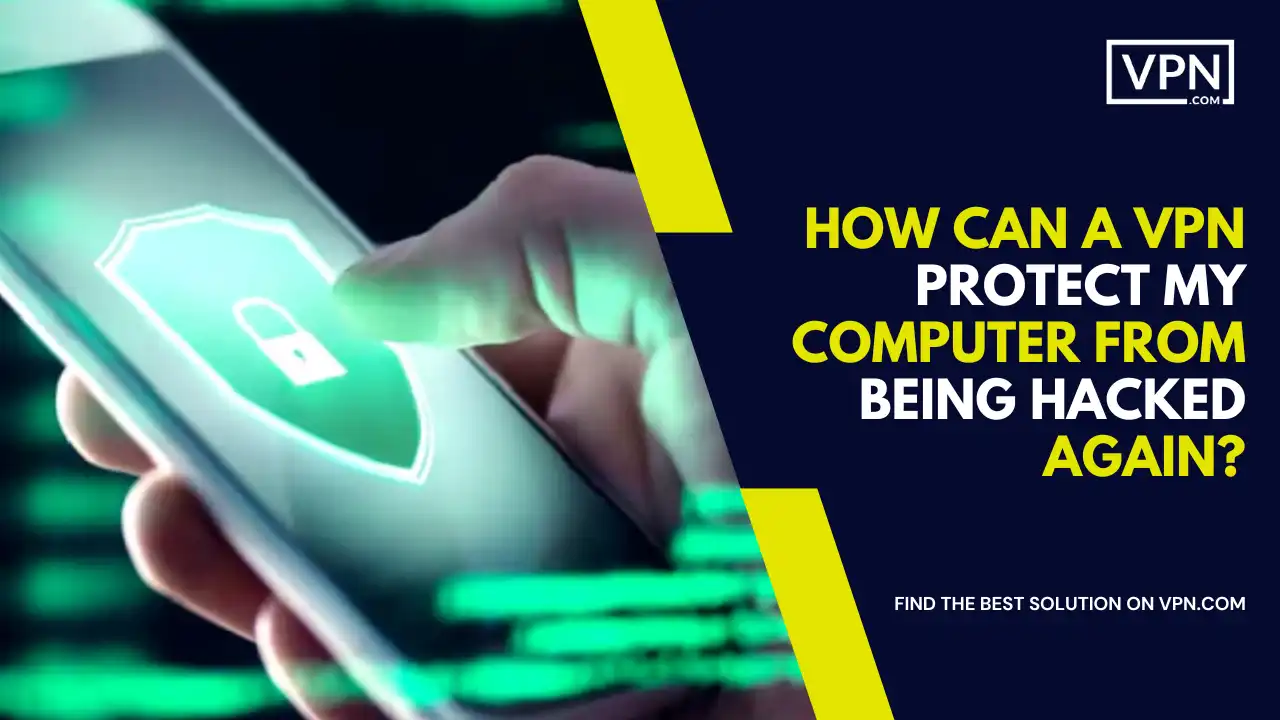
Getting hacked is an extremely unnerving inclination. It resembles a hoodlum breaking into your home and going through the entirety of your confidential things. Programmers can take significant documents, introduce destructive infections on your PC, take cash from your financial balances, and cause a wreck. Halting future hacks ought to be a main concern to safeguard your own data and security.
A virtual confidential organization, otherwise known as a VPN, is an incredible asset that can secure your PC’s web association, ensuring that a VPN protects your computer from being hacked. The VPN essentially conceals what you’re doing on the web, which is areas of strength behind it that keep you stowed away.
This strong security, ensuring that a VPN protects your computer from being hacked, makes it very challenging for programmers to screen your web traffic or break into your gadget and information streams.
This conceals your IP address and genuine actual area from intrusive eyes. Some inquiry emerges: how does a VPN stop different hacking endeavors? What’s more, is utilizing one sufficient to remain protected from digital dangers? VPNs can forestall hacking.
This top-to-bottom aid will make sense of, in straightforward terms, the manners in which VPNs get it done. We’ll likewise take a look at whether a VPN alone gives complete insurance or, on the other hand, if you want extra safety efforts.
What Are VPNs?
We should discuss VPNs. What are VPNs? The straightforward response is that a VPN, which is called a Virtual Private Network, resembles a safe passage for your web association. It works by encrypting or scrambling every one of the information you send and gets on the web so nobody can keep an eye on the thing you’re doing.
Your information then, at that point, goes through that private passage to a VPN server before it goes through the ordinary web. This conceals your genuine IP address and actual area from sites you access. It additionally obstructs programmers, your internet service, government offices, or others from seeing your web-based exercises or individual data.
A VPN keeps your perusing and downloading securely scrambled even in open areas of interest or on open Wifi. Envision the VPN burrow as a mysterious underground section. A section wherein nobody can own who’s voyaging or where the way leads. Just the VPN server can perceive a disarranged combination of things with the scrambled information toward the end.
Utilizing a dependable VPN administration is a simple method for keeping up with the mystery of your web and how you are utilizing it and forestall bunches of digital dangers from snooping (to get data about somebody’s private affairs) or hacking.

Get Started w/ NordVPN Today
- Top-rated VPN for OS unknown
- Ultra-fast speed in US in 2024
- Save 69% off with VPN.com Discount
- Plans starting at $2.99/month
- Rated 4.5/5 on Google Play with over 825,000 reviews
- Rated 4.7/5 on Apple App Store from 6,600 users
How Hackers Gain Access to Computers?
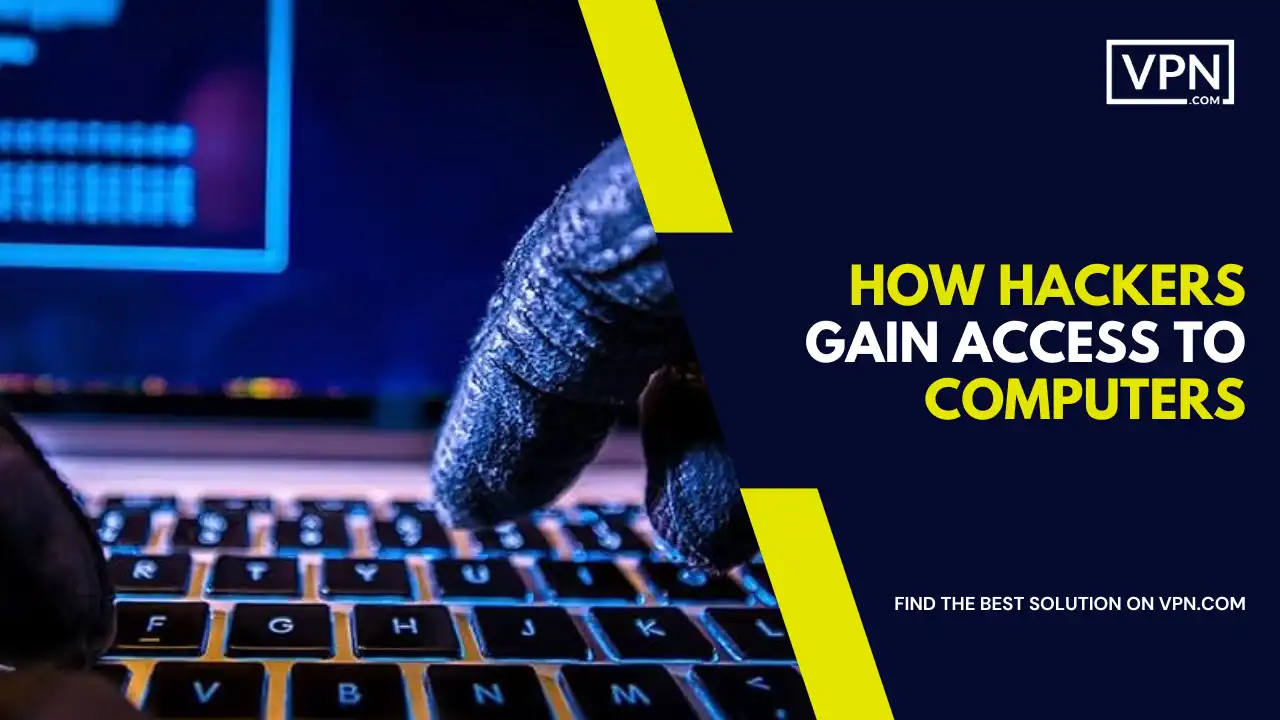
Before we jump into does VPN protects your computer, it’s important to understand some common techniques hackers use to break into computer systems. Some of the most common hacking methods include:
Phishing Attacks
One of the most globally famous hacking techniques is Phishing. It involves tricking users into revealing login credentials or other sensitive information, a risk from which a VPN protects your computer from being hacked.
Hackers may generate fake emails and send these emails to innocent persons to gain your sensitive data. These emails appear to be from a legitimate company. Hackers might set up fake websites in order to fetch your secret information.
Malware Distribution
Hackers often try to infect computers with viruses like spyware, ransomware, adware, and other malicious software. Once they have gained access to your system through this malware, they can take control of the whole system. Hackers might take remote access to your system.
Brute Force Attacks
Brute Force Attack is a software program that rapidly guesses login credentials and breaks your password. The hackers can sometimes break into accounts through brute force. The passwords that are weak or can be easily guessed are the most vulnerable.
Exploiting Software Vulnerabilities
If a software program such as an operating system or web browser has security bugs or vulnerabilities then the hackers may be able to exploit those vulnerabilities to gain unauthorized system access.
Open Wi-Fi Hacking
Public Wi-Fi networks are convenient but also prime targets for hackers to monitor internet traffic and steal data from the devices connected to that open port. Utilizing a VPN protects your computer from being hacked by encrypting your internet connection, thus safeguarding your data from hackers on public Wi-Fi networks.
How Does a VPN Protects Your Computer from Being Hacked?
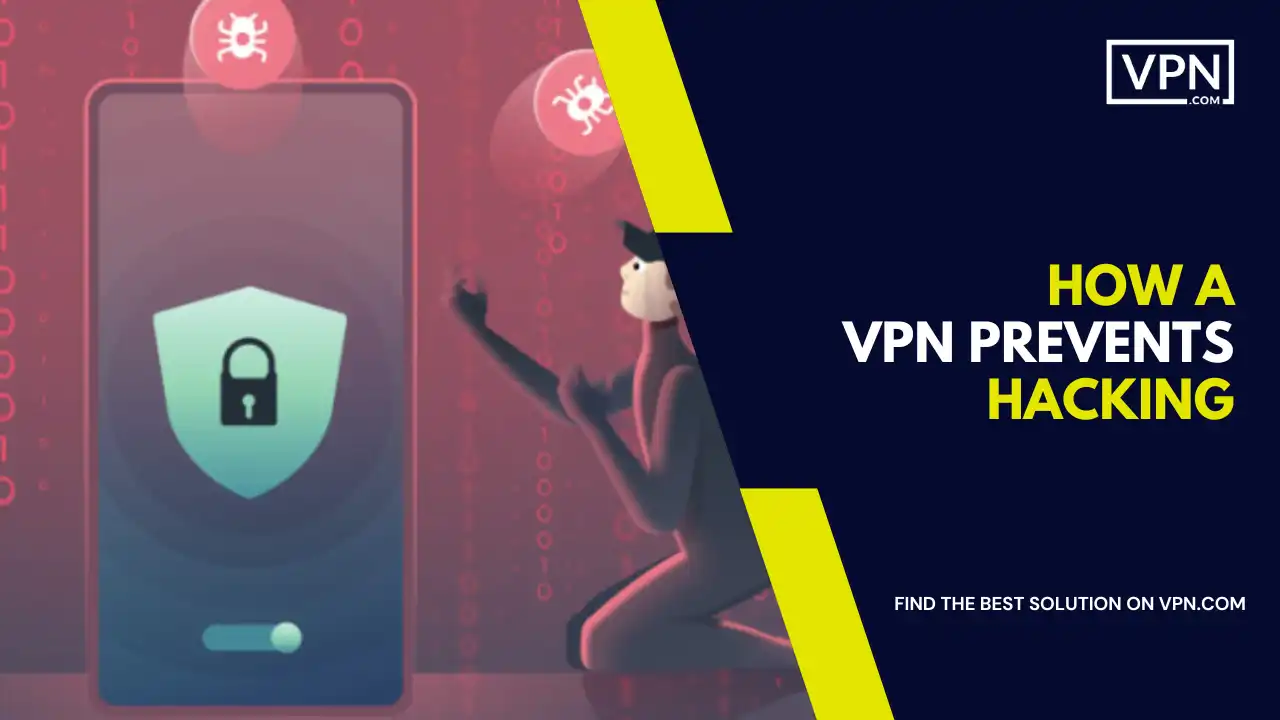
A VPN that has high-quality services can effectively block many common hacking methods by using strong encryption. They build secure private tunnels and other robust security features in order to hide your identity and online activities.
Encryption scrambles Data
In the depth of any VPN, there is powerful encryption. This encryption scrambles your internet data into a code that looks like a waste to anyone trying to spy on or hack it. The top VPNs use very secure military-grade 256-bit AES encryption along with additional security protocols like SHA-256 authentication.
Even if a hacker manages to gain your encrypted data streams, they won’t be able to read or understand the information without the special decryption keys. This encryption also prevents wireless snoopers from viewing your data on public WiFi networks.
Secure Tunneling Protocols
In addition to encryption, VPNs course your web traffic through a protected, scrambled passage to a distant, VPN protects your computer from being hacked. Burrowing conventions like OpenVPN, IKEv2, and WireGuard create this encrypted tunnel that safeguards data as it travels between your device and the VPN server.
With all data securely tunneled, it becomes very difficult for hackers to see what websites you visit, access data on your device, or take control of your web connection and system. Common hacking methods like eavesdropping on WiFi and packet sniffing are thus blocked.
Anonymous IP & Online Privacy
At the point when you interface with a VPN server, your genuine IP address is covered up and supplanted with the IP address of the VPN server. These IP address changes hinder sites, programmers, internet services, and others from following your web-based exercises back to your real actual area and web association.
At the point when your actual IP address is covered up and supplanted with the VPN server’s IP, it turns out to be truly challenging for anybody to follow your web-based exercises and information back to you. Your web traffic gives off an impression of being coming from the VPN server’s IP rather than your own.
VPNs additionally block the following methods like program fingerprinting. Program fingerprinting attempts to distinguish your particular gadget and advanced impression in view of your program design. VPNs keep this sort of following from uncovering insights regarding your gadget.
Your internet based exercises are anonymized while utilizing a VPN. It turns out to be incredibly challenging for programmers, digital hoodlums, or different dangers to target you explicitly with hacking endeavours or digital assaults on the grounds that your genuine personality and area are hidden.
In simple terms, the VPN replaces your IP, hides your actual location, and hides your internet activities which makes it very hard for anyone to trace your online actions and data back to you directly.
Protection on Public WiFi
Public WiFi areas of interest are exceptionally unreliable and dangerous to utilize. By interfacing over a VPN on open WiFi, you keep remote sneaks and programmers from observing your web traffic and getting information passing between your gadget and the organization.
The encryption, secure burrowing conventions, concealing your genuine IP address, and other VPN security benefits keep you completely safeguarded even on open, weak public WiFi networks that anybody could watch.
Blocking Malware & Cyberattacks
The main VPN administrations incorporate implicit frameworks to recognize and hinder destructive malware, ransomware, and other cyberattacks before they can contaminate your gadget. High level VPNs utilize canny danger discovery innovation, web sifting, and off buttons to forestall a wide variety of hacking and take advantage of vindictive internet based exercises from arriving at your framework.
So, in basic terms, a quality VPN scrambles your information, conceals your personality, and effectively hinders dangers, which allows you to securely utilize public WiFi or any organization without fears of being hacked, tainted with malware, or having your information compromised. The VPN acts as a strong security safeguard.
Tips for Maximizing VPN Security
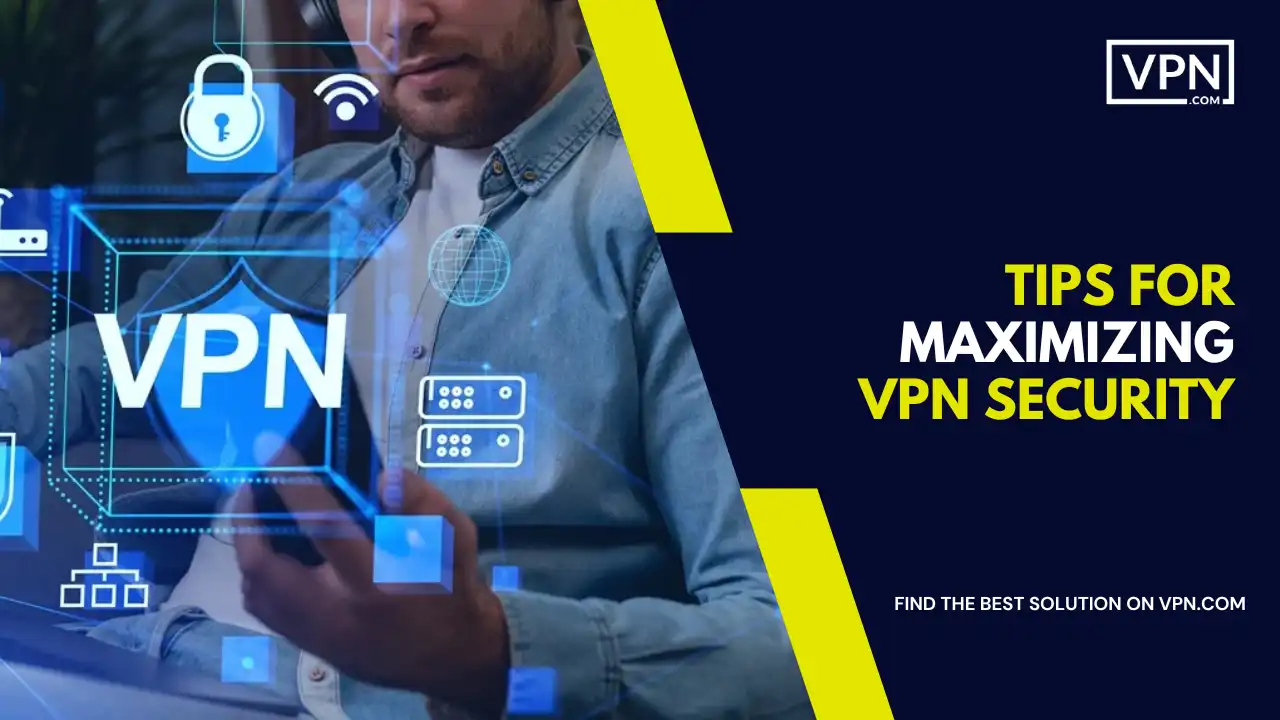
To get the most out of a VPN and prevent future system hacks, it’s important to follow certain best practices for setup and configuration. Here are some pro tips:

Get Started w/ NordVPN Today
- Top-rated VPN for OS unknown
- Ultra-fast speed in US in 2024
- Save 69% off with VPN.com Discount
- Plans starting at $2.99/month
- Rated 4.5/5 on Google Play with over 825,000 reviews
- Rated 4.7/5 on Apple App Store from 6,600 users
Choose a Reputable VPN Provider
Not all VPN services are equal in terms of security standards and protection abilities, especially when considering how a VPN protect you from hackers. Thoroughly research different providers and only use trusted VPNs with strong encryption, advanced secure protocols, proven no-log policies, automatic kill switches, and other key security features.
Configure VPN Settings Properly
Simply installing a VPN app isn’t enough – you need to ensure it’s set up for optimal protection. Enable settings like the OpenVPN protocol, very secure AES 256-bit encryption, a kill switch to stop data leaks, and auto-connect to maximize security.
Use VPN Consistently and Prioritize Privacy
To truly stay protected, use your VPN consistently for all internet connections, not just on public WiFi. Always make privacy the top priority and make sure to enable IP leak protection, disable WebRTC, and use split-tunneling carefully if needed.
Update Software & Security Tools Regularly
Keep your VPN software, operating system, browsers, and any security programs always updated and patched against the latest threats and vulnerabilities.
Use Other Security Measures Too
While a top VPN provides excellent defense against hacking, including how VPN protect you from hackers, you must also use anti-malware protection, two-factor authentication, a password manager, and more for total system security.
Educate Users on Security Practices
Technology alone can’t stop every threat, highlighting the importance of how a VPN protect you from hackers. Users need to learn cybersecurity best practices like identifying phishing scams, avoiding suspicious downloads, and using strong passwords.
By following suggestions like these and using multiple layers of cybersecurity, anyone can improve their ability to prevent future hacks. With a high-quality VPN as the core foundation, you can be assured your online activities and systems will stay secure and private.
Downsides of VPNs for Protection
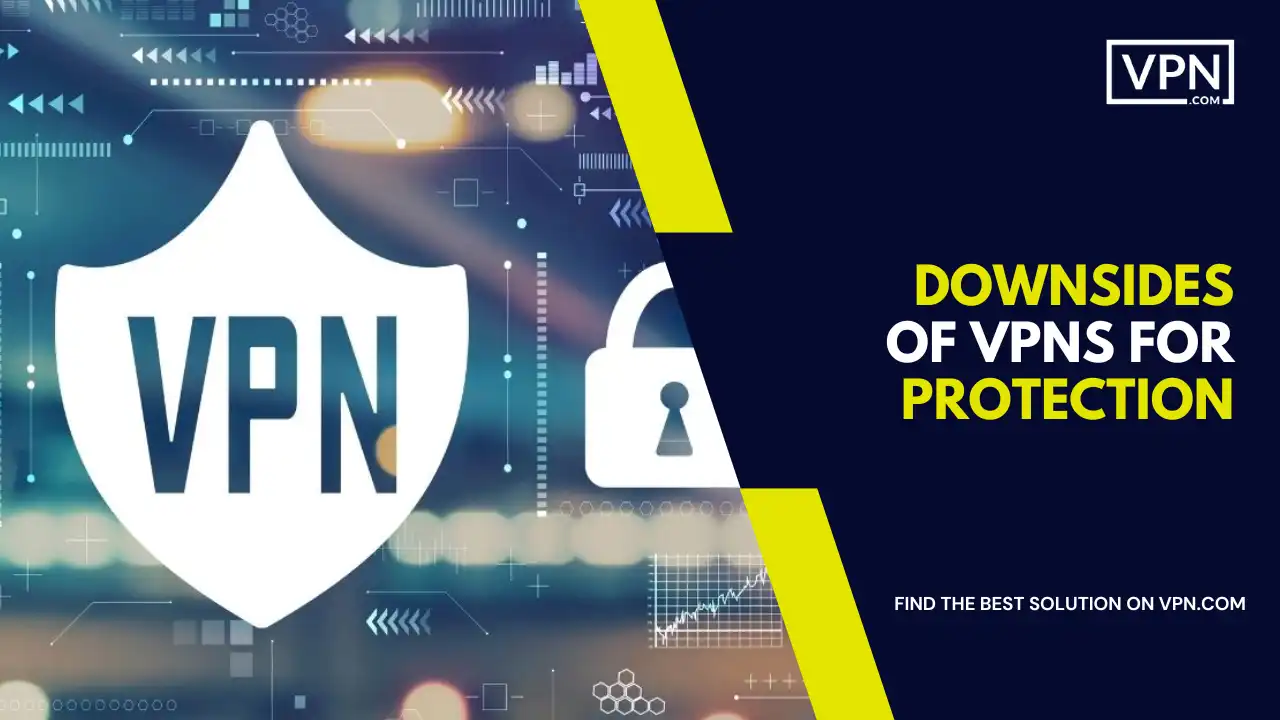
While VPNs add an extremely beneficial layer of security to prevent hacking, it’s important to understand their limitations. A VPN alone is not a complete security solution.
Other Attack Vectors
VPNs are exceptionally effective at guarding against network-based hacking attempts like packet sniffing, WiFi snooping, and hiding your IP address, making them vital tools in how VPN protect you from hackers. However, they don’t directly protect against other attack methods like phishing scams, brute force attacks to guess passwords, and software vulnerabilities/exploits.
For complete security, you ought to consolidate a VPN with extra devices like antivirus programming, two-figure verification for logging, and practices like areas of strength for utilizing. Client instruction is additionally significant for perceiving phishing endeavours and trying not to utilize unstable public wireless associations whenever the situation allows.
No Native Protection on Device
Even with a VPN turned on, an infected device could still be compromised by malware that has already gotten into the system. Specifically, if your home or office router is hacked, it would sit outside the VPN tunnel, potentially exposing all connected devices.
To reduce this risk, it’s important to keep your devices updated and use security software in addition to a VPN. You can also back up your data regularly. Using a router VPN or a router with a built-in VPN can also better secure your home network.
Logging & Potential Data Leaks
However most legitimate VPN suppliers have severe no-log approaches, lower-quality administrations might screen some client information or have security openings that could open your exercises to outsiders. There have additionally been instances of programmers effectively breaking into specific VPN organizations, underscoring the importance of choosing a VPN protect you from hackers.
To avoid this risk, always research and choose a trusted VPN with robust security audits, strict no-log policies, and smart breach protection features like an off switch. Reading professional reviews can also help identify any red flags around dubious logging practices or poor data protection.
Overall Effectiveness Against Hacking
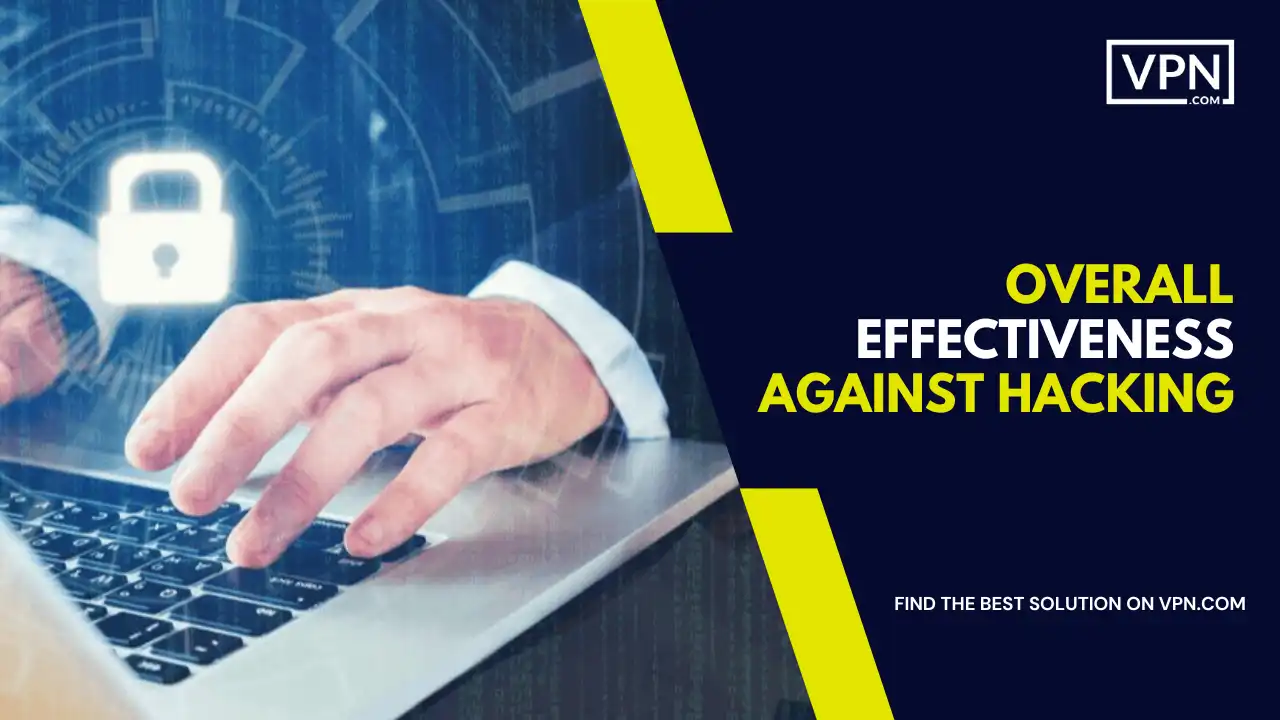
While VPNs have some limitations and can’t completely remove hacking risks on their own, they provide a major defensive line against a wide range of cyber threats and hacking techniques.
- If you choose a good VPN and set it up correctly, it will block the vast majority of hacks, online monitoring, and data exposure over internet connections.
- A 2021 study found that only 0.8% of hacking attempts were successful when targeting VPN users.
- VPNs use powerful encryption, secure tunneling, IP/location hiding, and extra attack-blocking features.
- This makes it extremely difficult for hackers to breach VPN users compared to people on regular, unsecured connections.
- VPNs are incredibly effective at stopping wireless snooping, traffic monitoring, network hacking attempts, and location/IP tracking.
- They provide an invaluable layer of privacy, data security, and overall anti-hacking protection when browsing the web or public WiFi networks.
VPN Protection: A Necessity, Not an Option
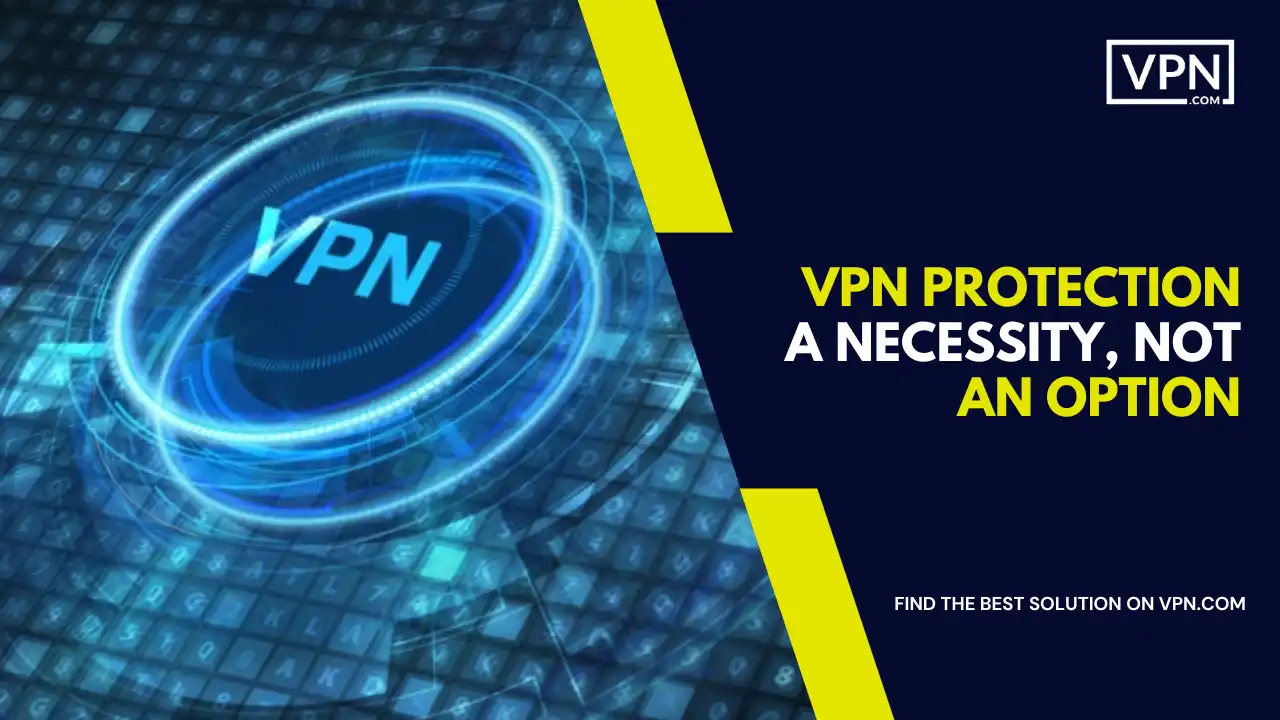
Anyone who has experienced a hack or cybersecurity breach knows how important it is to have strong online protection, especially since a VPN protect you from hackers. In our increasingly digital world, which is internet-connected, having shields in place against malicious hacking attempts should be a priority for everyone.
VPNs Are Highly Effective Security Tools
While not an enchanted arrangement against all dangers, VPN protect you from hackers and are one of the most mind-blowing instruments for forestalling normal hacking techniques. Top VPN administrations scramble your web information, conceal your computerized impression, and block digital assaults – halting most hacking cases and giving privacy.
Essential for Public WiFi Safety
VPNs are key for safely using public WiFi hotspots and insecure internet connections. The encryption, hiding your IP address, and secure tunneling shut down snooping, location tracking, and other hacking tactics that target unprotected systems.
Not The Only Layer Needed
VPNs can’t prevent every type of hack, so they should be combined with other smart practices like updated security software, strong passwords, etc. However, a quality VPN is the essential first layer of defense.
A Must-Have After Being Hacked
If you’ve experienced a hack, there’s no excuse not to use a robust, properly set up VPN, especially as a VPN protect you from hackers and other cybersecurity measures. Doing so helps achieve a heightened state of threat prevention moving forward.
Choosing The Right VPN Provider
When it comes to protecting yourself online with a VPN, not all providers are created equal. It’s important to do your research and choose a reputable, high-quality VPN service. Here are some tips for selecting the right one:
Look for Strong Encryption
Top VPN providers use very powerful encryption like AES-256 to gain your data in a way that looks like a waste for someone targeting your system. Even if hackers managed to gain access to your encrypted internet traffic, this extremely secure military-grade encryption would prevent them from being able to read or access any of your information.
Prefer No Log Policies
Some VPNs keep logs (records) of your online activity and data which could potentially be accessed by authorities or other third parties. To ensure your privacy, choose a reputable VPN with an independently-audited, strict no-log policy that doesn’t store any records of what you do online.
Check Server Locations
Having more VPN server locations globally gives you more options to connect from different regions/countries around the world. This provides better performance and access. VPN.com has one of the largest server networks with thousands of servers across over 60 countries worldwide.
Avoid Free VPNs
Free VPN services may look tempting, but they are very risky to use. They frequently have security flaws that hackers could exploit. They also keep logs and records of everything you do online, which defeats the purpose of using a VPN for privacy. Free VPNs limit how much data you can transfer, bombard you with constant advertisements, and offer poor performance.
It is well worth paying just a few dollars every month for a premium, paid VPN service instead of using the free ones. Paid VPNs provide much better security, privacy and performance.
Read Expert Reviews
Look at bad reviews of VPN providers, particularly focusing on how effectively a VPN protect you from hackers, from respected tech publications and cybersecurity experts. Their deep knowledge and in-depth analyses can reveal any potential issues, weaknesses, or red flags with certain VPN services before you subscribe.

Get Started w/ NordVPN Today
- Top-rated VPN for OS unknown
- Ultra-fast speed in US in 2024
- Save 69% off with VPN.com Discount
- Plans starting at $2.99/month
- Rated 4.5/5 on Google Play with over 825,000 reviews
- Rated 4.7/5 on Apple App Store from 6,600 users
The Bottom Line!
In the end, using a top-quality VPN service is one of the best ways to protect yourself from getting hacked again. A virtual private network encrypts (scrambles) your internet data, hides your online activities, and blocks lots of common hacking tactics.
While VPNs create a powerful security layer that prevents the vast majority of cyber threats and breaches, it is not a silver bullet solution. Especially if you’ve experienced a hack before, you understand how important it is to have strong defenses. VPN protects your computer from being hacked.
Premium VPN protects your computer from being hacked, with other smart practices, you can significantly reduce your risk and regain your peace of mind over your digital privacy and security. For anyone serious about preventing future hacks, a virtual private network is an indispensable tool moving forward.
In simple terms, a quality VPN encrypts your data, hides your activities, blocks hackers, and provides a strong layer of security, especially after being hacked before. Using a VPN while using your software is a safe practice that lowers your risk of future hacks and helps you stay private and secure online. A VPN is an essential tool against hacking.
Customer Reviews for NordVPN: In-Depth Review, Tests, and Stats

Connection issues with MLB.TV
May, 2 2023

Prompt customer service
May, 6 2023

I would highly recommend
December, 15 2023



